Indigenous Governance Database
citizen education
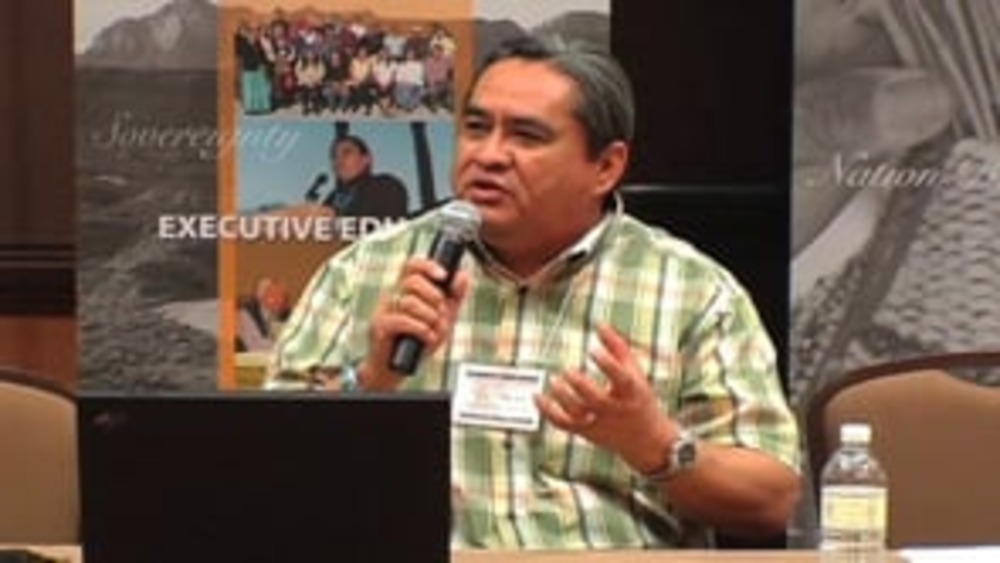
Peterson Zah and Manley A. Begay, Jr.: Strategic Thinking and Planning: Navajo Nation Permanent Trust Fund (Q&A)
Manley Begay and Peterson Zah field questions from the audience concerning the Navajo Nation Permanent Trust Fund and how they and others worked to mobilize and sustain the citizen support necessary to keep the fund intact and allow it to grow.
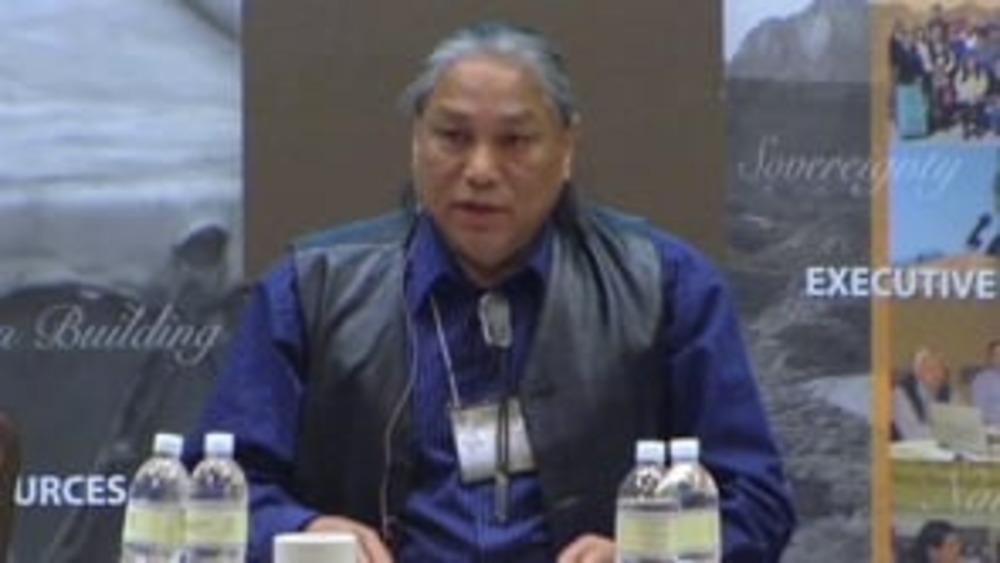
Denny Hurtado: Addressing Tough Governance Issues
Former Skokomish Tribal Nation Chairman Denny Hurtado discusses how he, his fellow leaders and his nation exercised its sovereignty in order to navigate past some tough governance challenges to fund their government, restore their land base, and protect their natural resources.
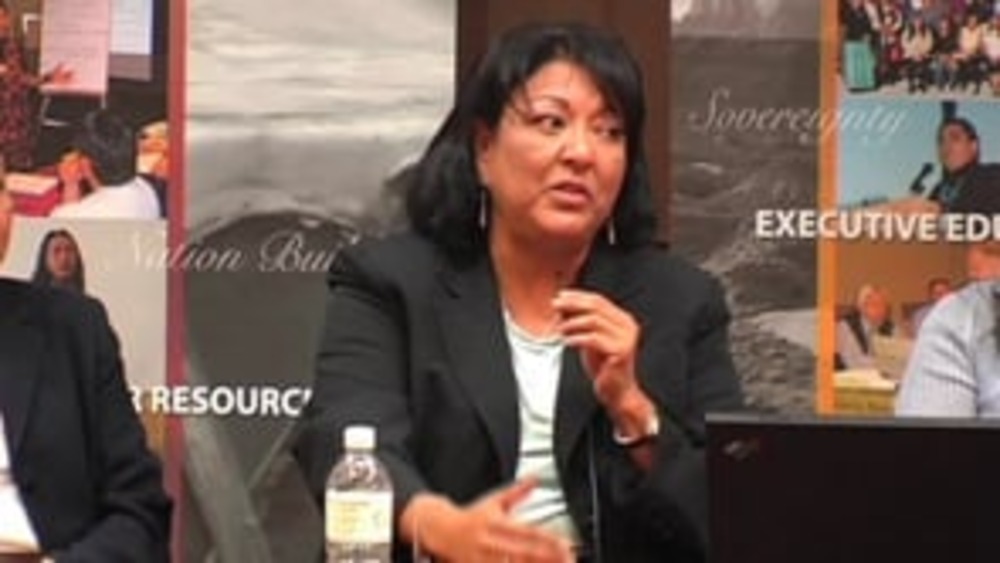
Sheila Morago, Jill Peters, and Theresa M. Pouley: Some Tools to Govern Effectively (Q&A)
Sheila Morago, Jill Peters, and Theresa M. Pouley field questions from the audience concerning lobbying, the importance of public education about tribal sovereignty and development, and how the Tulalip Tribal Court deals with fetal alcohol syndrome and its effects.
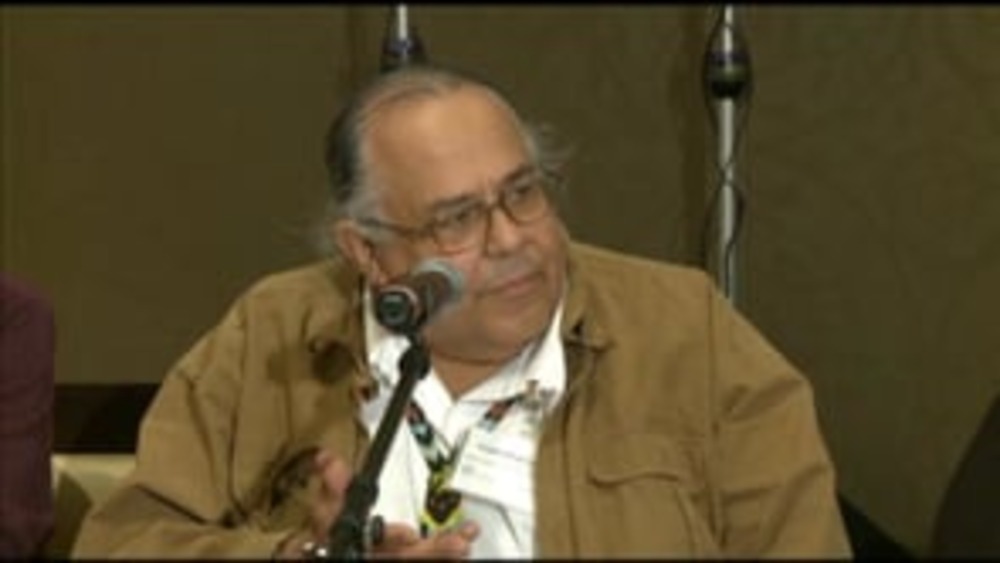
Constitutional Reform: A Wrap-Up Discussion (Q&A)
NNI "Tribal Constitutions" seminar presenters, panelists and participants Robert Breaker, Julia Coates, Frank Ettawageshik, Miriam Jorgensen, Gwen Phillips, Ian Record, Melissa L. Tatum and Joan Timeche field questions from the audience about separations of powers, citizenship, blood quantum and…
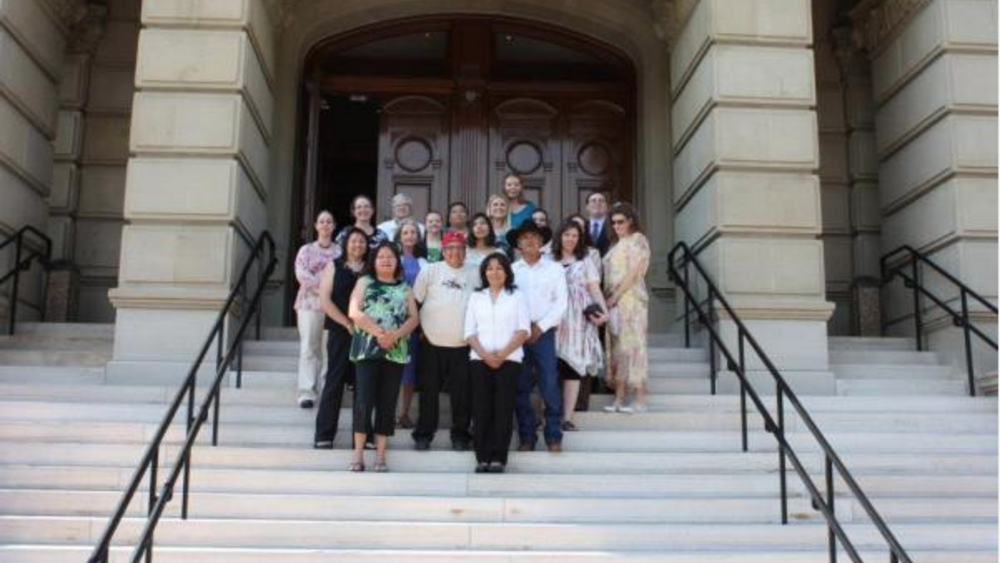
Empowering Parents Brings Community Change in Wind River
If you are a parent who has ever thought, “What can I do?” or “I am just a parent,” Clarisse Harris, Northern Paiute, has a program that might interest you. On the Wind River Reservation in Wyoming, the Parent Leadership Training Institute is arming parents with the tools to bring changes within…
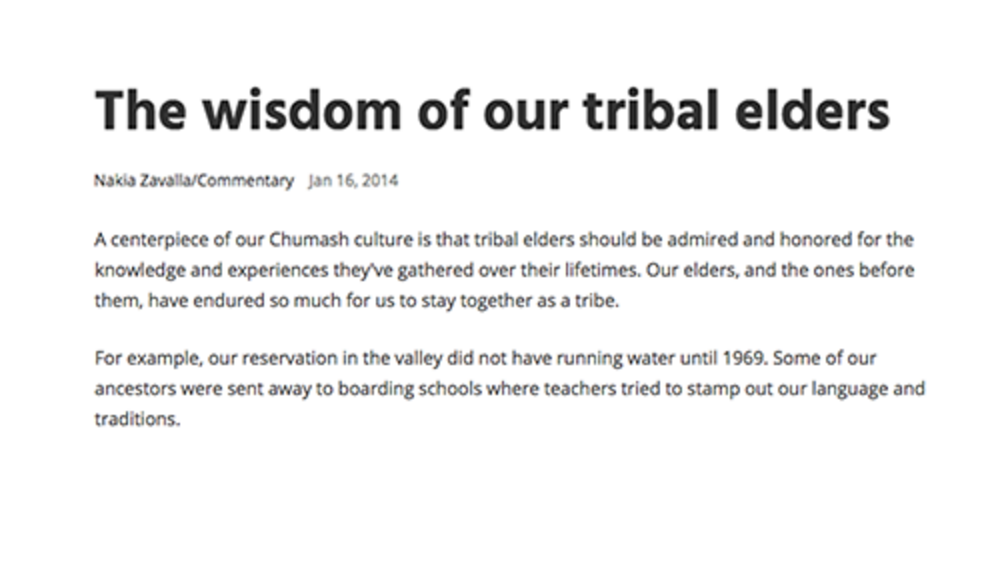
The wisdom of our tribal elders
A centerpiece of our Chumash culture is that tribal elders should be admired and honored for the knowledge and experiences they've gathered over their lifetimes. Our elders, and the ones before them, have endured so much for us to stay together as a tribe. For example, our reservation in the…
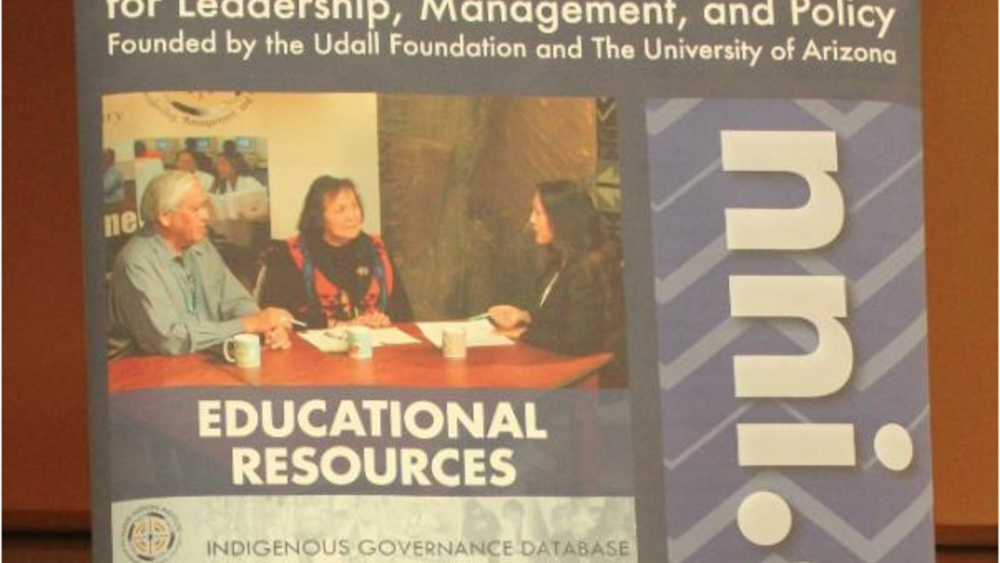
Educating Indian Country's Future Leaders
To grapple with the concept of good leaders and how to become one, 100 attendees–newly-elected and aspiring leaders from Native Nations–gathered in Tucson, Arizona November 6-7 for a specifically-developed Executive Education Seminar titled, "Emerging Leaders." Developed by the Native Nations…
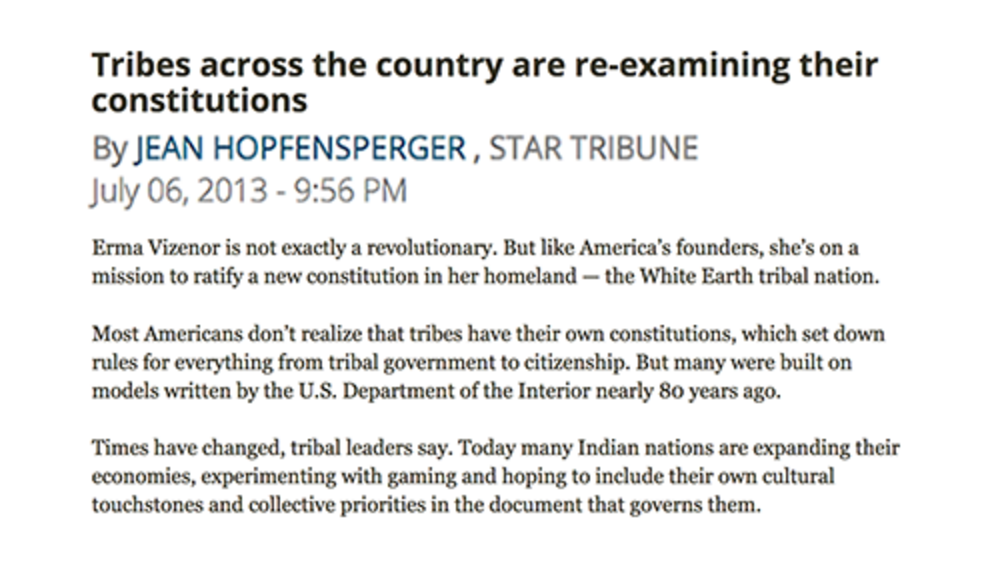
Tribes across the country are re-examining their constitutions
Erma Vizenor is not exactly a revolutionary. But like America’s founders, she’s on a mission to ratify a new constitution in her homeland – the White Earth tribal nation. Most Americans don’t realize that tribes have their own constitutions, which set down rules for everything from tribal…
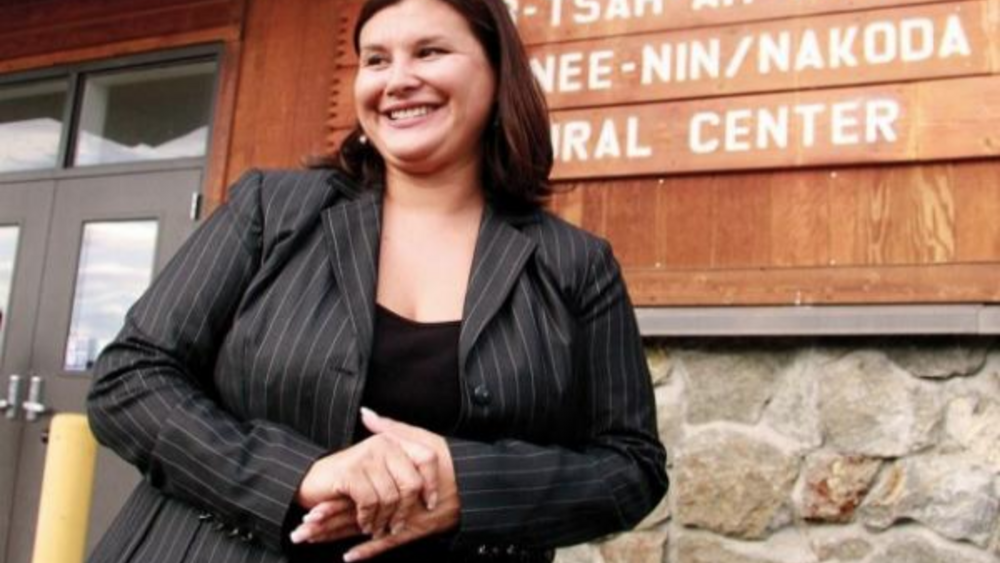
Immersion School is Saving a Native American Language
The White Clay Immersion School on the Fort Belknap Indian Reservation in Harlem, Montana is trying to save the A’ani language. Thanks to the school’s efforts 26 students, a record for the school, are currently studying the Native American language...
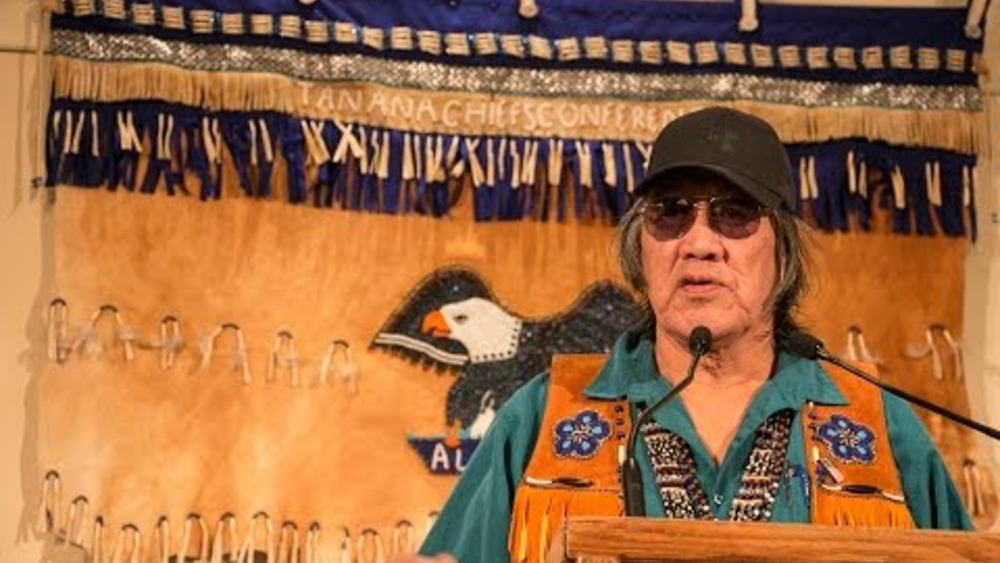
Trimble Gilbert - Tanana Chiefs Conference's 2015 Keynote Speaker
On March 17th, 2015, Second Traditional Chief Trimble Gilbert of Arctic Village spoke as the keynote at Tanana Chiefs Conference's Annual Convention. The theme for this convention was 'Stronger Together for the Next 100 Years'. Trimble Gilbert is a Gwich’in Athabascan Elder and speaker of Dinjii…
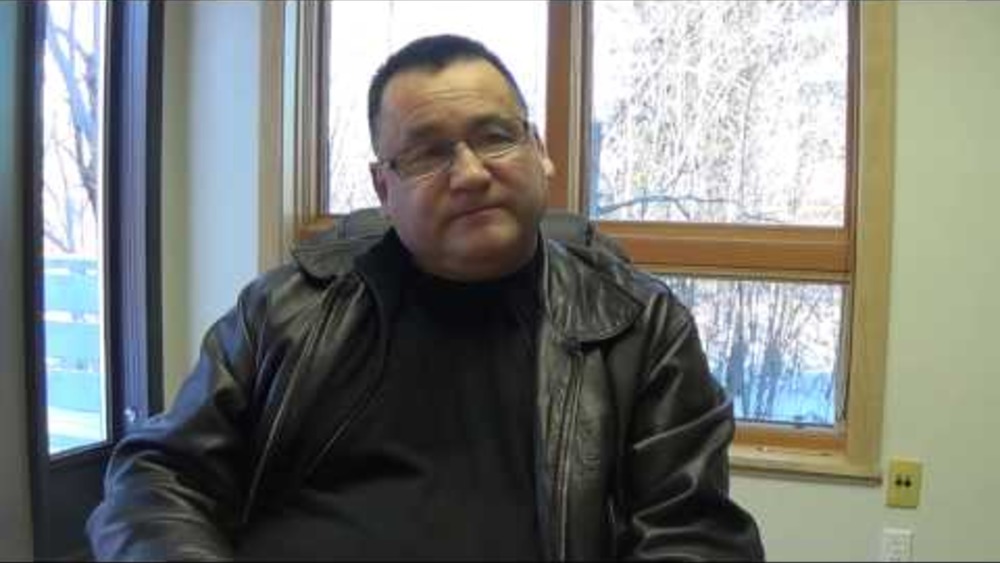
Nipissing Gichi-Naaknigewin
Nipissing First Nation members and staff, members of Chief and Council, as well as the Grand Council Chief, speak to the Nipissing Gichi-Naaknigewin.
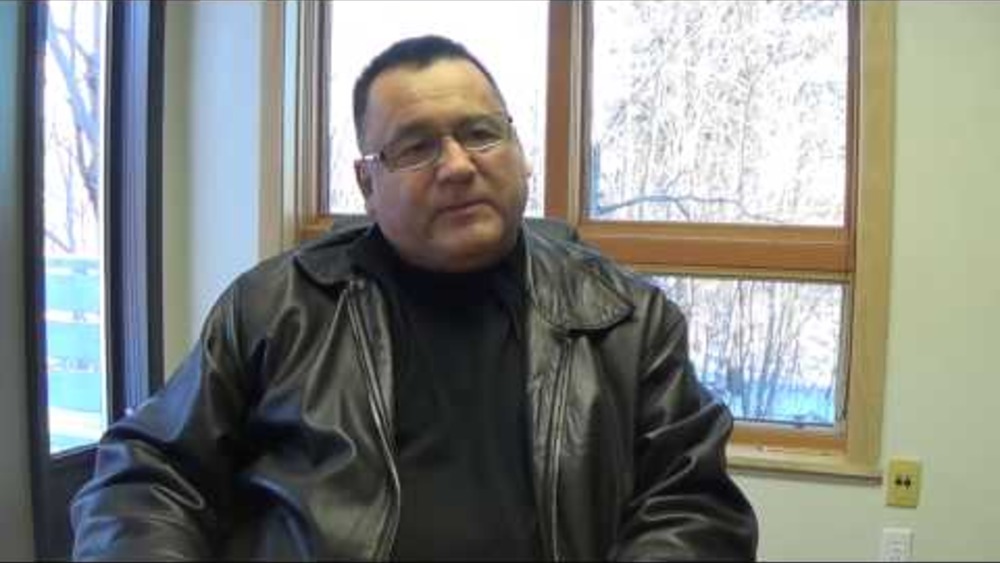
Grand Council Chief Patrick Madahbee: NFN Gichi-Naaknigewin
Anishinabek Nation Grand Council Chief Patrick Wedaseh Madahbee speaks to Nipissing First Nation members about the importance of the Gichi-Naaknigewin (Constitution) and its relationship to community development.
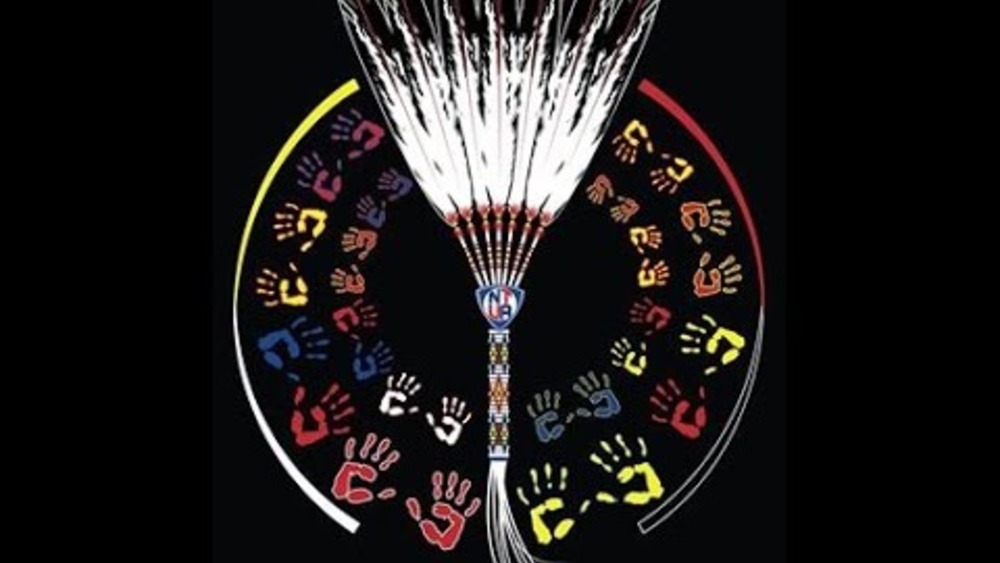
Blackfeet Constitutional Change Class
The summation of all several videos...the complete 6 1/2 hour taping of the discussion of why our current Constitution, Charter, and Plan of Operations have become ineffective for our current times as a people and Piikani Nation for "Blackfeet Government Change" of Joe McKay and Blackfeet Community…
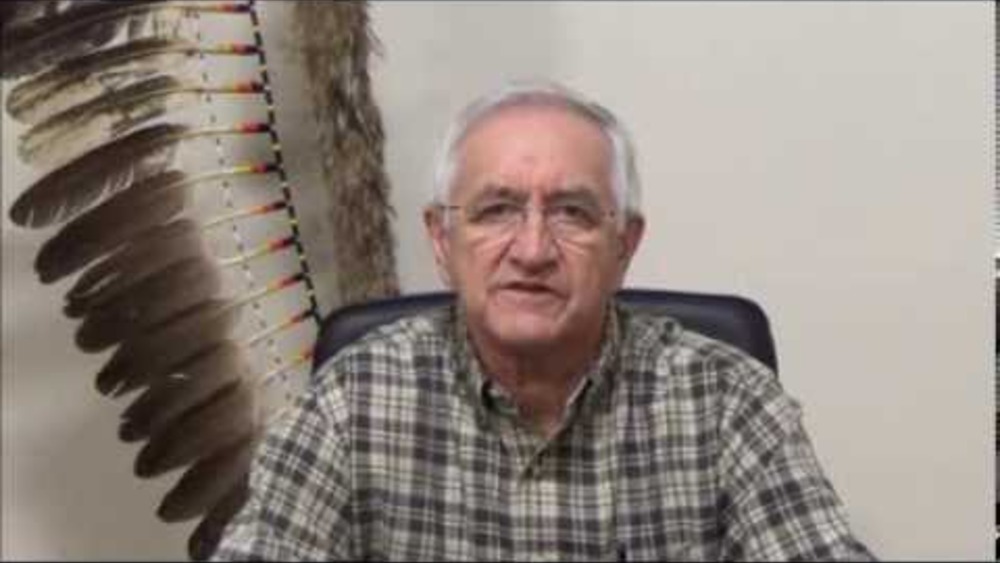
Arnold May: Nipissing First Nation Gichi-Naaknigewin (Constitution)
Counsellor Arnold May of the Nipissing First Nation discusses the importance of the Nipissing Gichi-Naaknigewin (Constitution), which was ratified in 2014 by the Nipissing people.
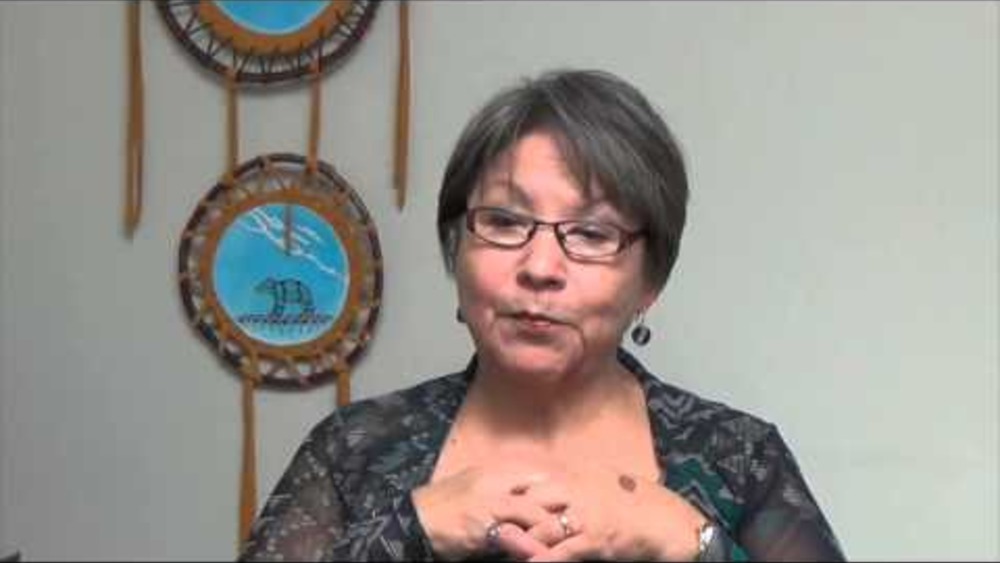
Carol Croxon: Nipissing First Nation's Gichi-Naaknigewin
Nipissing First Nation community member Carol Croxon describes what the Nipissing Gichi-Naaknigewin (Constitution) means to her in this short video explaining the document to the Nipissing people.
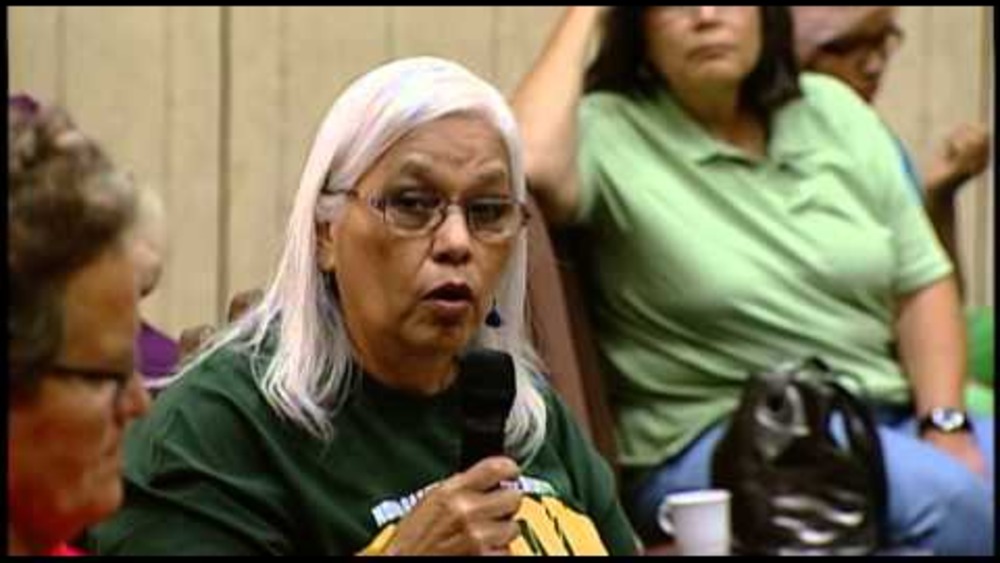
Truth To Tell: Community Connections - White Earth Constitutional Forum Part II
In collaboration with production partner KKWE/Niijii Radio, TruthToTell and CivicMedia/Minnesota traveled west on August 14, 2013, to the White Earth Reservation to air/televise the seventh in our series of LIVE Community Connections forums on critical Minnesota issues. Convened at White Earth's…
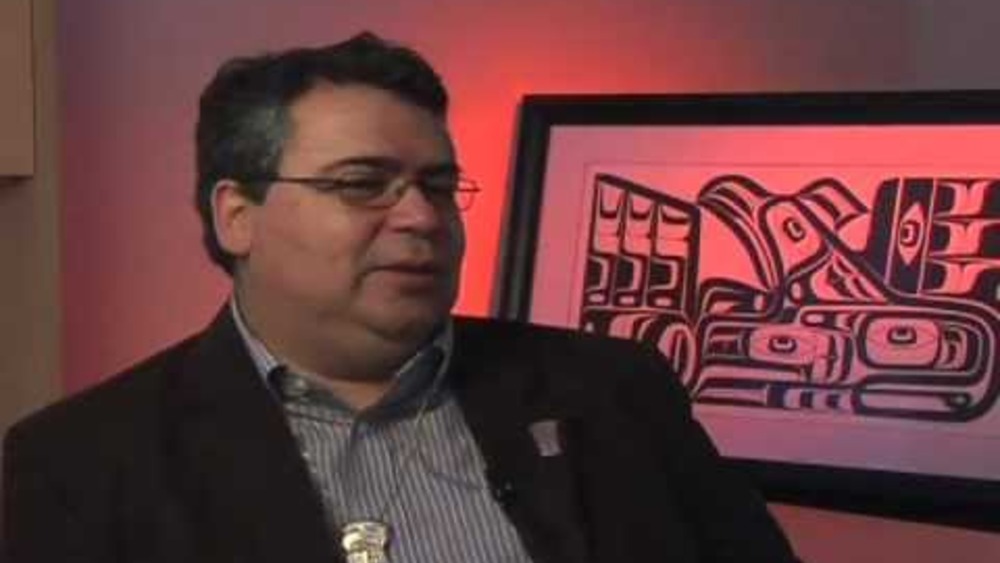
Developing a First Nation Constitution
Chiefs, Administrators and Advisors discuss the importance of constitutions and the work involved in developing their own nation's constitution.
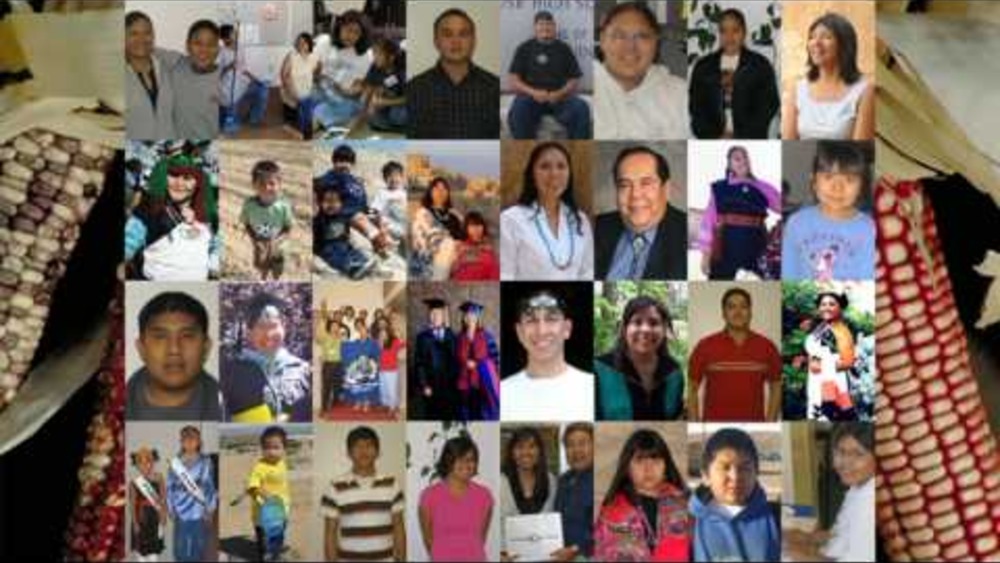
Planting the Seeds...for Our Children's Future: The Hopi Education Endowment Fund
This seven-minute video presents the founding, development, and current work of the Hopi Education Endowment Fund (HEEF), which won an Honoring Nations award (High Honors) from the Harvard Project on American Indian Economic Development in 2006. The video chronicles HEEF's work in support of…
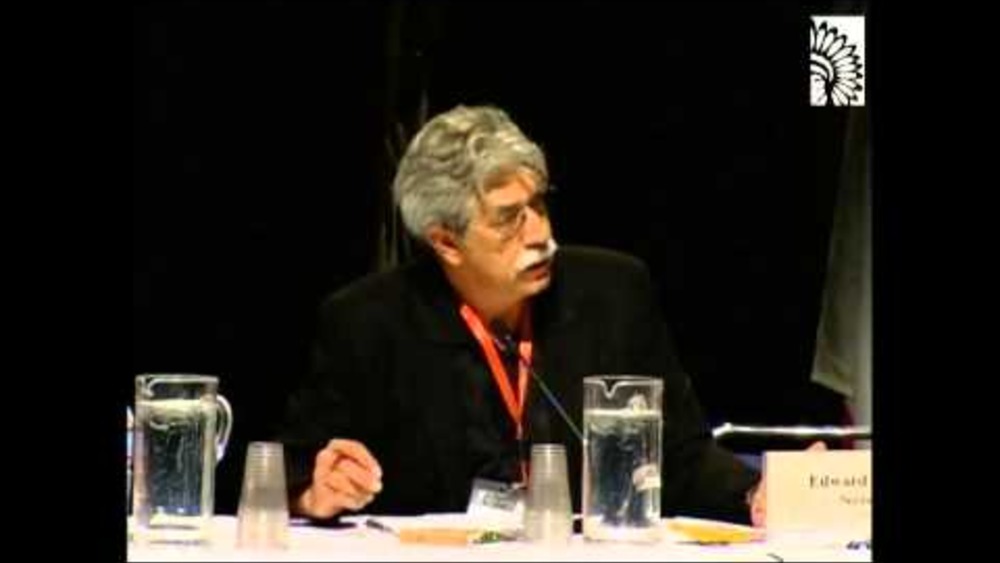
Melvin L. Sheldon: Refining Our United Vision
Melvin L. Sheldon, Chairman of the Tulalip Tribes, provides an overview of Tulalip's building of a sustainable, diversified economy, and discusses some of the important steps Tulalip took to create a commercial environment capable of supporting business success.
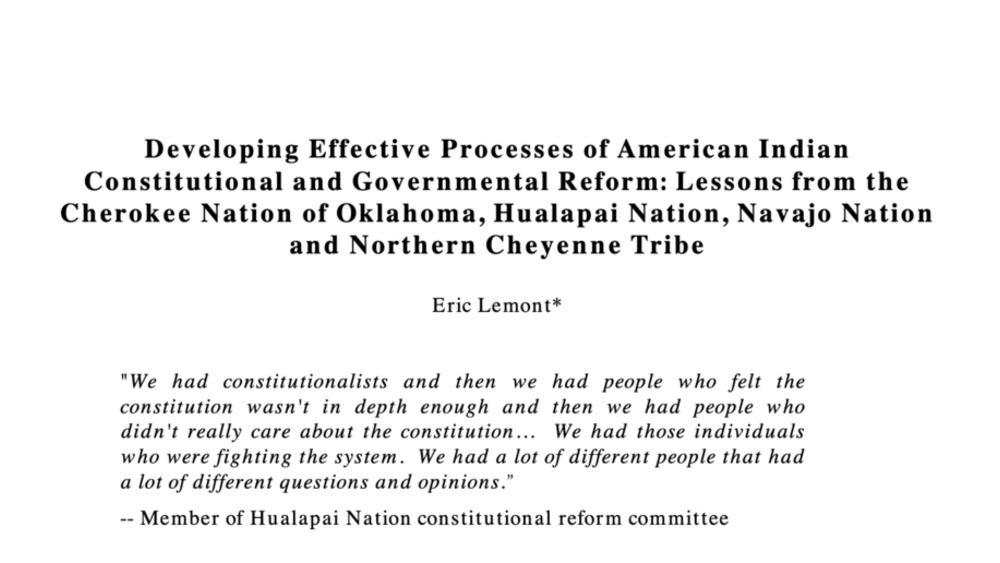
Developing Effective Processes of American Indian Constitutional and Governmental Reform: Lessons from the Cherokee Nation of Oklahoma, Hualapai Nation, Navajo Nation and Northern Cheyenne Tribe
Over the past several decades, numerous American Indian nations have been revising their constitutions to create more legitimate, effective and culturally-appropriate governments. However, successful processes of reform have been hindered by a variety of universal challenges, including political…
Pagination
- First page
- …
- 2
- 3
- 4
- …
- Last page
